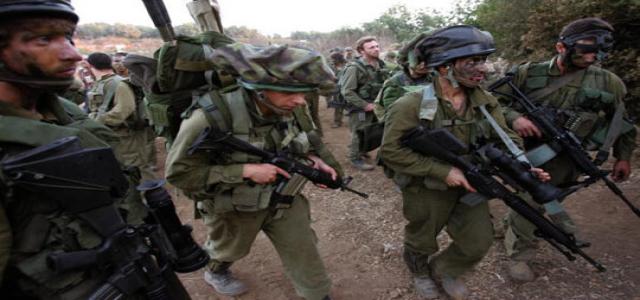|
|||||||||
| :: Issues > Human Rights | |||||||||

"War criminals" leak strikes at heart of Israeli society
Paul Larudee considers the implications for Israel and its armed forces of the leaking of the details of 200 Israeli military personnel who participated in the invasion of Gaza of 2008-09, which resulted in the murder of more than 1,400 people, primarily civilians, including over 340 children.
|
|||||||||
| Wednesday, November 24,2010 22:05 | |||||||||
|
|||||||||
|
Paul Larudee considers the implications for Israel and its armed forces of the leaking of the details of 200 Israeli military personnel who participated in the invasion of Gaza of 2008-09, which resulted in the murder of more than 1,400 people, primarily civilians, including over 340 children.
When unknown elements in Israel leaked the name, rank, identification number and other information about two hundred Israeli military personnel who reportedly participated in the 2008-09 invasion of Gaza, the effect was sudden and profound, according to sources in Israel.
What is so special about the list? As several critics have pointed out, it doesn't even state the crimes that the listed individuals are alleged to have committed. The publication of the list of 200 changes everything. The list contains the names of a few high-ranking officers, but many of those named are in the lower ranks, all the way down to sergeant. The effect is to make ordinary Israelis concerned that they, too, may be subject to arrest abroad, and without the protection that well-connected higher officials might enjoy. They know what they have done, or been ordered to do, or have ordered others to do, and they suspect that they may be held accountable by foreign laws, over which their government has little control. Many Israelis already fear that an anti-Semitic world is looking for an excuse to shut down the Zionist experiment. It is therefore not a great leap to believe that they could become pawns -- or scapegoats -- in the rising chorus of voices speaking out for Palestinian rights and against Israeli abuses.
This has serious consequences for Israeli society. It potentially increases the number of youths who will try to avoid the military, the rates of emigration and immigration, and other patterns of commitment to Israel and its military. Most of all, according to the sources, it may cause soldiers to begin to question policy and orders far more than in the past, because of the way it may affect them personally. The debate is already taking place around the question, “Can I be held responsible?” The answer to that question could potentially determine whether it will be possible to mount a massive offensive against a population that has no effective military forces, as in Gaza, or where saturation bombing, cluster munitions and depleted uranium might be used, as in Lebanon. This is potentially a daunting prospect for Israeli military commanders, and some sources in Israel believe that the publication of the 200 has already had that effect. Paul Larudee is co-founder of the Free Gaza and Free Palestine movements and an organizer in the International Solidarity Movement.
Source: Redress Information & Analysis (http://www.redress.cc). Material published on Redress may be republished with full attribution to Redress Information & Analysis (http://www.redress.cc) |
|||||||||
|
tags: War Criminals / Gaza / Israeli Soldier / Palestinian / Detainees / Amnesty / Zionist / Lebanon / Facebook / Palestine / Goldstone / War Crimes / Gaza Strip / Palestinian Centre for Human Rights / Human Rights Watch / Palestinian Rights
Posted in Human Rights , Palestine |
|||||||||
|
|||||||||
|
|
|||||||||
| Related Articles | |||||||||
|
|






